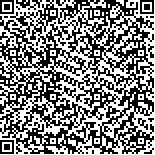|
|
| |
|
|
| 本文已被:浏览 1392次 下载 1011次 |

码上扫一扫! |
|
|
| 海水铝浓度对海链藻活性、生产力及其固碳性的影响 |
|
周洁玉1,2, 刘冬1,2,3, 田倩1,2, 周军明1,2, 魏辉煌1,2, 李梦圆1,2, 宋雅然1,2, 刘红昌4
|
|
1.中国科学院广州地球化学研究所, 矿物与成矿重点实验室, 广东 广州 510640;2.中国科学院大学, 北京 100049;3.近海海洋环境科学国家重点实验室(厦门大学), 福建 厦门 361005;4.中南大学, 资源加工与生物工程学院, 湖南 长沙 410083
|
|
| 摘要: |
| 近年来,随着人类工业活动的增多及强淋溶性酸雨的频繁出现,大量的铝被输入到海洋中,导致海水环境中铝浓度的急剧增加。由于可溶性铝对绝大多数水生生物具有生物毒害性,其浓度的增加势必将影响到水生生物,尤其是对环境变化较为敏感的水生植物等的生命活动及其所涉及的元素地球化学循环作用。作为全球生产力的主要贡献者,硅藻提供了40%的海洋初级生产力,并通过“生物泵”作用,调控着全球碳循环。海水中铝浓度的增加,是否将影响其生物作用及其固碳能力,尚不清楚。基于上述问题,本研究通过对近海典型硅藻(威氏海链藻)的实验室富铝培养,以探讨可溶性铝浓度对该硅藻的生物活性、生产力及其所驱动的碳元素的生物地球化学循环的影响及机制。结果表明:当海洋环境中铝浓度略有升高时(≤ 50 nmol/L),海链藻未发现有铝毒害产生,其初级生产力反而有所提高。然而,不同铝浓度条件下,海链藻的固碳能力表现出明显差异:在铝浓度为20 nmol/L时,海链藻的固碳能力较之未添加铝时有显著提高。对铝迁移的研究发现,环境中的铝可被硅藻通过生物作用捕获,并用于其硅质壳体的构建。上述结果表明,海水中铝浓度对于硅藻的生命活动有显著影响,也可以影响硅藻的固碳能力,进而影响到硅藻在全球海洋“生物泵”中的作用。 |
| 关键词: 硅藻 铝捕获 海洋初级生产力 固碳 硅藻壳体 |
| DOI:10.11759/hykx20200430002 |
| 分类号:P735 |
| 基金项目:国家自然科学基金面上项目(41772041);国家自然科学基金青年基金项目(41202024);近海海洋环境科学国家重点实验室(厦门大学)“访问学者基金”(MELRS2006) |
|
| Effects of aluminum concentration in seawater on the activity, productivity, and carbon sequestration of Thalassiosira weissflogii |
|
ZHOU Jie-yu1,2, LIU Dong1,2,3, TIAN Qian1,2, ZHOU Jun-ming1,2, WEI Hui-huang1,2, LI Meng-yuan1,2, SONG Ya-ran1,2, LIU Hong-chang4
|
|
1.Key Laboratory of Minerals and Mineralization, Guangzhou Institude of Geochemistry, Chinese Academy of Sciences, Guangzhou 510640, China;2.University of Chinese Academy of Sciences, Beijing 100049, China;3.Key Laboratory of Offshore Marine Environmental Science (Xiamen University), Xiamen 361005, China;4.School of Resource processing and Biological Engineering, Central South University, Changsha 410083, China
|
| Abstract: |
| Recently, huge amounts of aluminum (Al) have been imported into oceans due to increasing industrial activities and intensive eluviation of soils and rocks by acid rain, thus consequently resulting in a rapid increase of Al concentration in seawater. The biological activity and related biological driven geochemical cycling of most aquatic organisms that are sensitive to environmental changes will consequently be influenced by such Al concentrations increment, given the biological toxicity of Al. As an important contributor to global productivity, diatoms provide 40% of marine primary productivity and regulate the global carbon cycle through a "biological pump." However, whether the increase in aluminum concentration in seawater will affect its biological activities and its carbon sequestration capacity remains unclear. In this study, we aimed to investigate the effect and mechanism of Al concentrations on biological activity and productivity of one marine diatom and its driven biogeochemical cycle of carbon. Thalassiosira weissflogii, a typical offshore diatom, was selected as a model of marine diatoms and cultured in Al-rich medium. Results showed no toxic effect on Thalassiosira weissflogii when Al concentrations were ≤ 50 nmol/L. Nonetheless, these Al concentrations resulted in an increase in primary productivity of the model diatom (Thalassiosira weissflogii). However, the carbon sequestration capacity of the model diatom is varied with different Al concentrations, such that, when it was 20 nmol/L, carbon sequestration capacity of the diatom was higher than when Al was not added. Moreover, Al was taken up by biological behaviors of the diatom and used as a framework element to build siliceous shells. These fundamental results show that Al concentration in seawater has a significant effect on biological activity of diatoms. When the concentration reaches a certain threshold, it significantly decreases the carbon sequestration capacity of diatoms, thus affecting the global role of diatom in the "biological pump." |
| Key words: Diatoms Ocean primary productivity Aluminum Carbon fixation |
|
|
|
|
|
|
